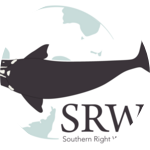About This Project
As a global consortium of SRW researchers, we rely on decades' worth of irreplaceable photo-identification datasets to assess conservation status. Unfortunately, current photo-ID processing systems rely on manual photo manipulation and matching. This leads to bottlenecks in photo processing and an inability to proceed with in-depth research projects. We therefore aim to develop an advanced fully automated AI-based photo-identification system specifically for SRWs.
Ask the Scientists
Join The DiscussionWhat is the context of this research?
Southern right whales were hunted from >100,000 individuals to a few hundred around 1920. Today, since their international protection from whaling, the species is recovering but remains at low levels. In some of the wintering areas, long-term photo-ID studies have been ongoing since the 1970s. While methodologies for these long-term studies vary, most involve annual aerial surveys that count and photo-identify SRWs in coastal waters based on overhead images of the callosity pattern on their head. These datasets have provided a wealth of information on behaviour, population abundance and trends over the past five decades. However, due to the large sizes, the currently existing semi-automated comparison processes are no longer viable, and an automated system is needed.
What is the significance of this project?
The ability to automatically identify southern right whales from photographs will have wide-ranging implications for research, conservation and whale-based tourism. From a research perspective, the automated identification of individuals will allow researchers to process ID images efficiently, work through bottlenecks of data, incorporate years of unprocessed data, and compile a global ID catalogue of the species. Such improved research outputs will have direct impacts on the conservation management of the species. Furthermore, the ability to instantly identify these whales from a tourism vessel using citizen science will allow for improved outreach and communication to tourists, increasing awareness of the wider community.
What are the goals of the project?
This project aims to develop a fully automated AI-based matching system for individual photo-identification of southern right whales. This will be a milestone in the SRW scientific community as this is a promising tool that has shown progress in the past decade for several whale and dolphin species, allowing us to steer away from non-user-friendly and labour-intensive photo-identification systems.
Budget
Financial resources are needed to support the work of AI developers to progress and trial an advanced, fully automated photo-identification system for southern right whales, ensuring efficient data processing for effective leveraging of existing long-term datasets. This will allow addressing priority research questions for species management. The work includes the development of a standardised annotated southern right whale photo-ID database using images from the three largest global datasets available (Argentina, South Africa and Australia, together > 150,000 images). Subsequently, this database will be used to develop AI algorithms and training models to ensure an automated photo-ID accuracy benchmark of 90% top-1 potential matches.
Partial funding has been made available through YaquPacha and the Nuremberg Zoo, to whom we are very grateful. However, more funds are needed to ensure completion of the project.
Endorsed by
 Project Timeline
Project Timeline
Funding dependent, the full project is estimated to last 14 months, including 8 months of data annotation and creation of training datasets and 6 months of algorithm development and testing.
Oct 01, 2024
Project Launched
Jan 01, 2025
Data preparation: create database records for each identified SRW using image data from the three largest global datasets available (>10,000 individuals)
Aug 31, 2025
Creating training dataset: Develop a standardised dataset with correctly oriented and annotated images ready for algorithm training.
Feb 01, 2026
Algorithm development: Develop algorithms for SRW recognition, train and test the models, provide and setup AI cloud server with GPU capabilities
Meet the Team
Team Bio
The Southern Right Whale Consortium (https://southernrightwhaleconsortium.org) will work in collaboration with AI developers in AT Design (https://data.marinemammals.gov.au/arwpic) to complete this project. All matching algorithms developed under this proposal will be made open source.
Southern Right Whale Consortium
The Southern Right Whale Consortium is an international collaboration with the ultimate goal to improve our understanding and conservation management of the southern right whale across the globe!
Lab Notes
Nothing posted yet.
Additional Information
The ability to identify individuals of wildlife populations allow researchers to investigate population parameters such as reproductive rates, survival chances, population growth or decline rates, movement patterns and population connectivity, to name but a few.
Project Backers
- 14Backers
- 117%Funded
- $11,740Total Donations
- $838.57Average Donation

